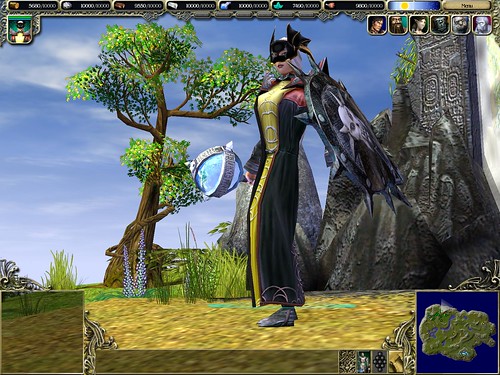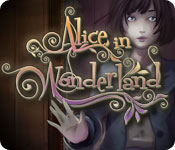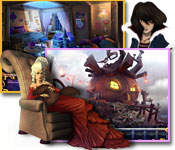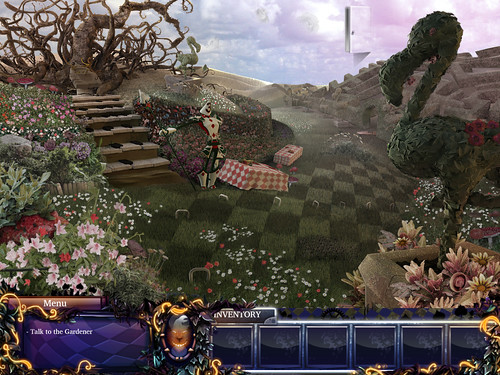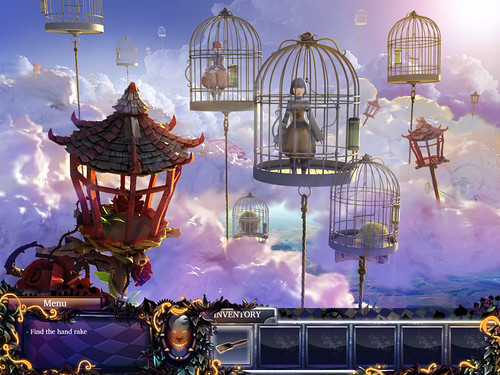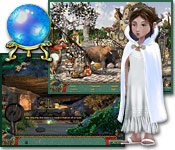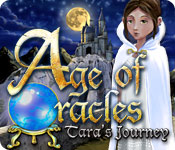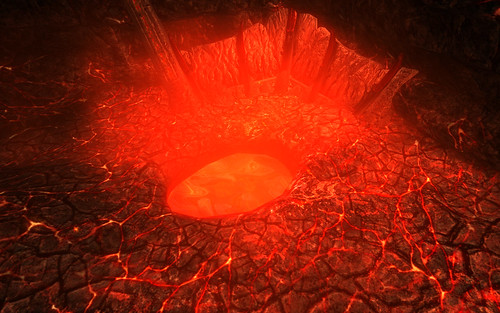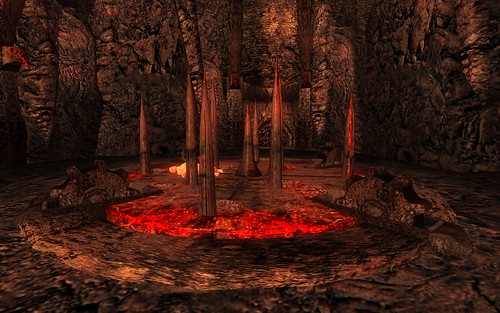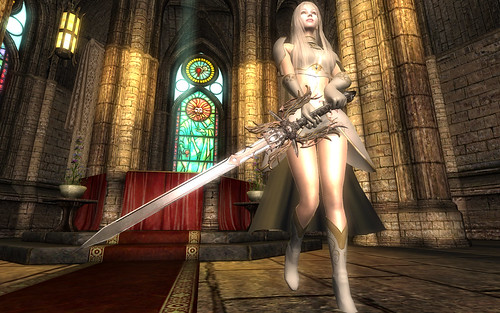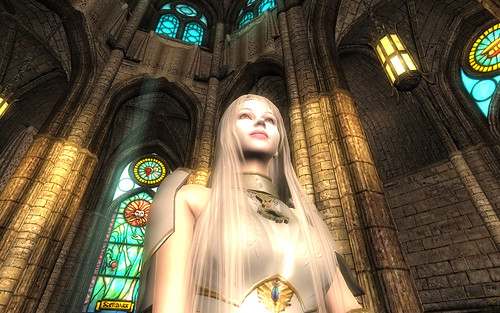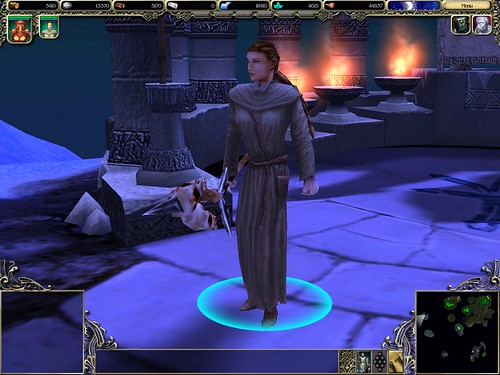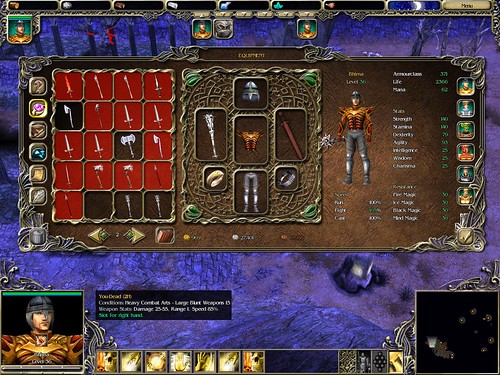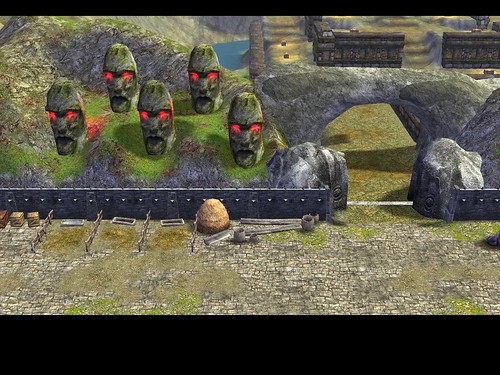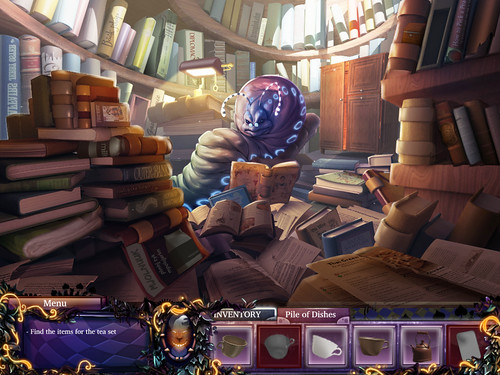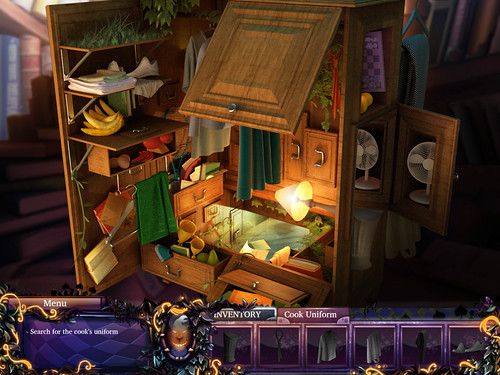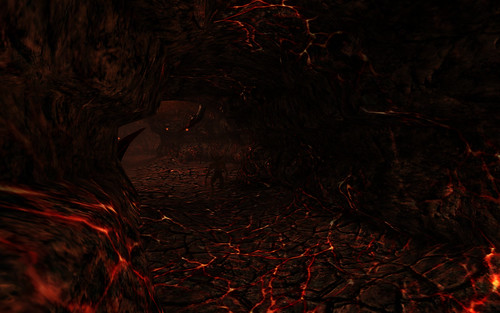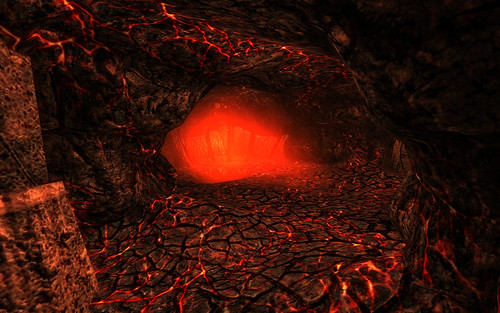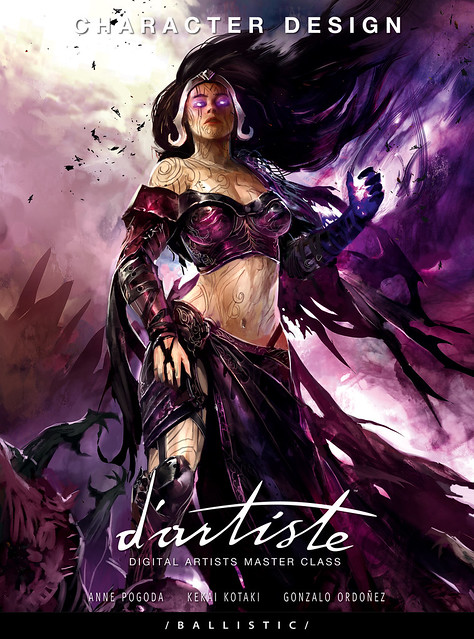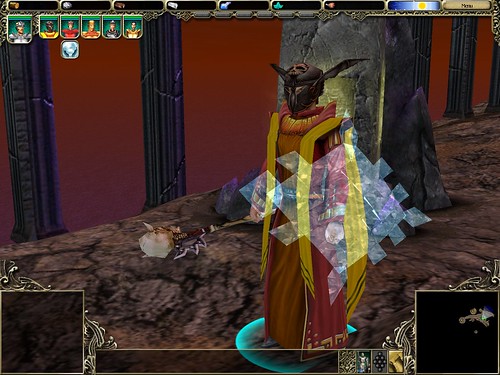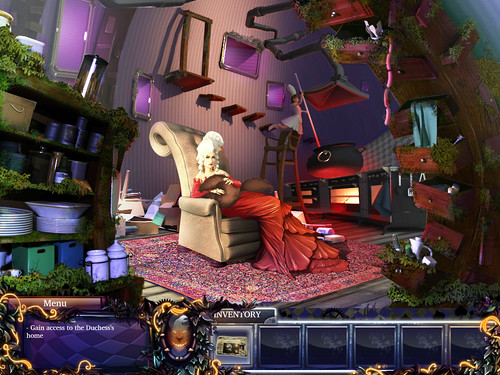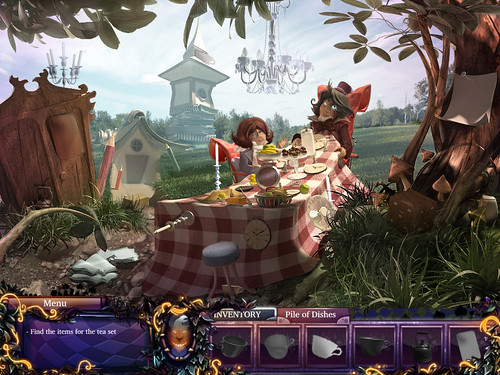| For more artwork from SpellForce, visit The Fantasy Art of Computer Games. |
Saturday, April 30, 2011
Friday, April 29, 2011
The Fantasy Art of Alice in Wonderland
| For more fantasy art / game art from the hidden object game Alice in Wonderland, go to The Fantasy Art of Computer Games. |
Thursday, April 28, 2011
The Fantasy Art of Age of Oracles - Tara's Journey
| For more fantasy art / game art from the hidden object game Age Of Oracles: Tara's Journey, go to The Fantasy Art of Computer Games. |
Wednesday, April 27, 2011
The Fantasy Art of Computer Games - Koinup Editor's Choice


What's Koinup?
Koinup is the first social network to share your virtual life by publishing your machinima, screenshots and virtual stories.
It allows users to upload, share and review contents they create within virtual worlds, metaverse, mmorpg and games as Second Life, IMVU, World of Warcraft, The Sims 2 and many others.
Why is Koinup different?
Koinup is different in respect to the other social networks because it is focused on contents generated in virtual worlds, metaverses and games.
Koinup is also different because it allow its member not only one media, but almost anykind of media.
If you join Koinup, you have the chance to publish and share your videos, your pictures and your stories shooted in virtual world and games as Second Life and many others.
Photography enthusiast can join Koinup and publish their pictures or, using our storyboard tool, share stories mixing images and words!
Machinima authors can join Koinup and post their movies, but also create their own storyboards or even publish posters or stills from their upcoming videos!
Tuesday, April 26, 2011
The Fantasy Art of The Elder Scrolls IV: Oblivion Gates and Worlds
Monday, April 25, 2011
The Fantasy Art of Second Life

by jazmine_morken2000

by trydzia
Sunday, April 24, 2011
The Fantasy Art of Elder Scrolls IV: Oblivion - Hentai Mania mod
| Hentai Mania is a mod for The Elder Scrolls IV: Oblivion. For more artwork from Oblivion or the Hentai Mania mod, visit The Fantasy Art of Computer Games. |
Saturday, April 23, 2011
The Fantasy Art of Computer Games - Spellforce
Friday, April 22, 2011
The Fantasy Art of Alice in Wonderland
| For more fantasy art / game art from the hidden object game Alice in Wonderland, go to The Fantasy Art of Computer Games. |
Thursday, April 21, 2011
The Fantasy Art of Age of Oracles - Tara's Journey
| For more fantasy art / game art from the hidden object game Age Of Oracles: Tara's Journey, go to The Fantasy Art of Computer Games. |
Wednesday, April 20, 2011
The Fantasy Art of Computer Games - Koinup Editor's Choice


What's Koinup?
Koinup is the first social network to share your virtual life by publishing your machinima, screenshots and virtual stories.
It allows users to upload, share and review contents they create within virtual worlds, metaverse, mmorpg and games as Second Life, IMVU, World of Warcraft, The Sims 2 and many others.
Why is Koinup different?
Koinup is different in respect to the other social networks because it is focused on contents generated in virtual worlds, metaverses and games.
Koinup is also different because it allow its member not only one media, but almost anykind of media.
If you join Koinup, you have the chance to publish and share your videos, your pictures and your stories shooted in virtual world and games as Second Life and many others.
Photography enthusiast can join Koinup and publish their pictures or, using our storyboard tool, share stories mixing images and words!
Machinima authors can join Koinup and post their movies, but also create their own storyboards or even publish posters or stills from their upcoming videos!
Tuesday, April 19, 2011
The Fantasy Art of The Elder Scrolls IV: Oblivion Gates and Worlds
Monday, April 18, 2011
The Fantasy Art of Second Life
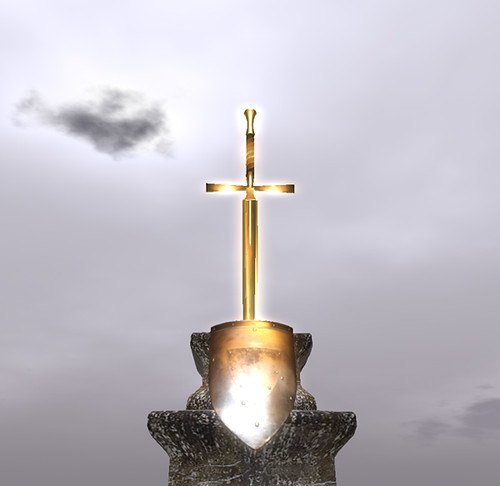
by Poet Scarborough
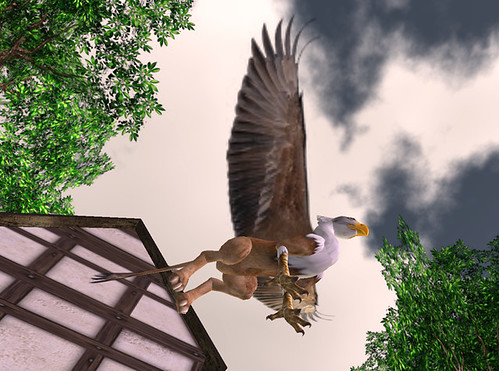
by Poet Scarborough
Sunday, April 17, 2011
Book Review - d'artiste Character Design
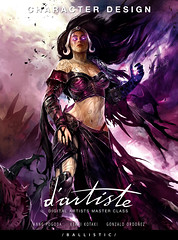
d'artiste Digital Artists Master Class - Character Design - from Ballistic Publishing
How does one get started with such a broad topic as "character design"? What needs to be covered? How can you possibly talk about it with enough depth to make it insightful, yet without branching into too many things as to make it overwhelming?
Whether you realize it or not, you will approach Ballistic Publishing's Character Design (shipping May 2011) with a heck of a lot of preconceptions about what it should cover and a lot of hope about what it will have. You will probably be both initially disappointed yet pleasantly surprised all the way through -- after wasting maybe fifteen minutes flipping randomly looking at the beautiful art before realizing you wanted to see what it had to say about character design. (Click here for a book previewer where you can see all the pretty pictures.) Here are the discussions/lessons included in this 208-page book:
by Anne Pogoda:
- Designing female character variations
- Designing a character in motion: Anime style
- Rescuing a character design: Combining two paintings
by Kekai Kotaki:
- Character design: A wild character
- Character design: A heroic character
- Character design: A evil character
by Gonzalo Ordoñez:
- Fantasy character design: Devil-killing angel
- Norse mythology: Warrior and wolf
A quick flip-through of the book will quickly make it clear that this is not a "How To Draw" book
Each of the lessons demonstrated by the teachers begin with a very short overview, and then one piece which exemplifies what the lesson is about. The overviews can feel really quite disappointing because of how short they are. For example, this excerpt from "Character design: A heroic character" is practically a third of the entire overview:
"... As I am trying to draw the character I want to think about what kind of designs I can produce to make this character heroic. The heroic pose, the color scheme, and the lack of overly aggressive design elements help this. One thing that I also want to keep in mind is to not make this a pretty concept. I want to give a sense that this character can do work. This means keeping the base design tough and ready to rumble."
You might be thinking, "What are heroic color schemes?" "What does 'ready to rumble' look like?" You can either get that information elsewhere or just more or less guess and feel your way through based on previous experience. Whatever the case, it's not clearly laid out in the book, and if you're looking for that, you're looking in the wrong place.
For the non-digital-artist (or even non-artist layman), this overview talks about the high-level considerations of designing a heroic character, bringing to the fore aspects of such artwork you may not have consciously picked up on before. If you let it sink in and keep it in mind while looking at a lot of artwork in the days to come, you may well realize that it is a good chunk of insight without going into too-specific examples and instructions. Not every piece you see will fall into the broad strokes of Kotaki's wild / heroic / evil character design baselines, but in general they hold true for characters that, without the benefit of a description, you may immediately think of as being a rogue / good-guy / bad-guy. Whether this is what you will be satisfied with, I leave up to you.
The specific examples for each lesson is looked at with the detail of a step-by-step from blank canvas to finished artwork. These are accompanied by commentary that includes not just the artist's thoughts and intentions at each stage, but where useful, techniques and various software functions applied are described.
What makes these detailed panels useful to read even for non-artists who just want to know more about art and character design are the occasional insights and about the character / artwork and why they turned out that way. For example, "... The focus of the painting is located around her friendly face with her red hair. With light that is almost attached like a spot, the whole painting will appear at once much warmer, and her expression will appear to be more friendly. ... Now, her head needs to be rotated a bit to give her a more innocent expression..." (p23).
So what is Ballistic Publishing's Character Design all about? If you want a toolbox or handy reference while creating artwork yourself, go for a How-to-Draw book or facial expression reference or the like. But if you want to know "how does a master artist think when they are producing art" -- if you want to get in their head and maybe accelerate your development as an artist by modelling those who are already excellent at it -- then give this book a shot. If it doesn't enlighten you in the least, call Ballistic Publishing right away: I'm sure they'd love to feature a master artist like yourself in their next book.
Saturday, April 16, 2011
The Fantasy Art of Computer Games - Spellforce
Friday, April 15, 2011
The Fantasy Art of Alice in Wonderland
| For more fantasy art / game art from the hidden object game Alice in Wonderland, go to The Fantasy Art of Computer Games. |

